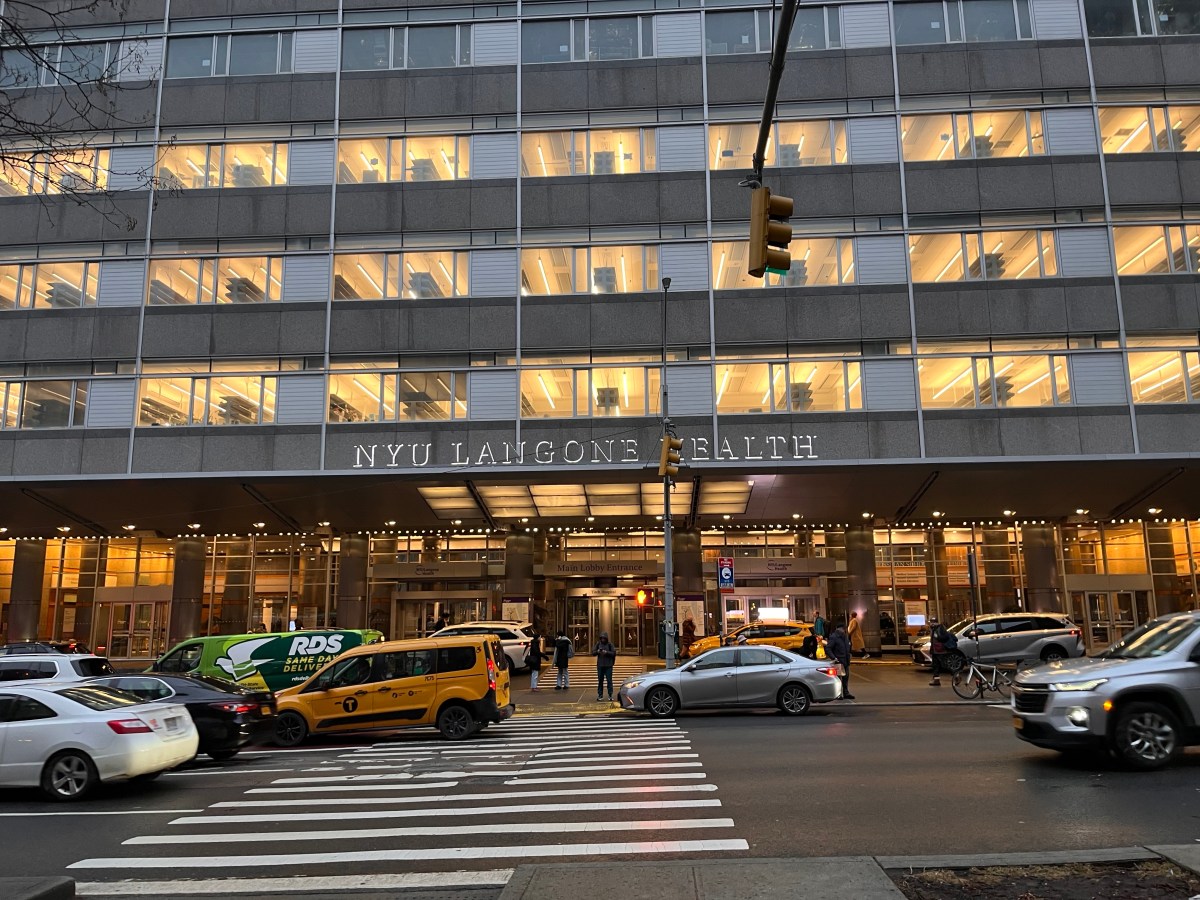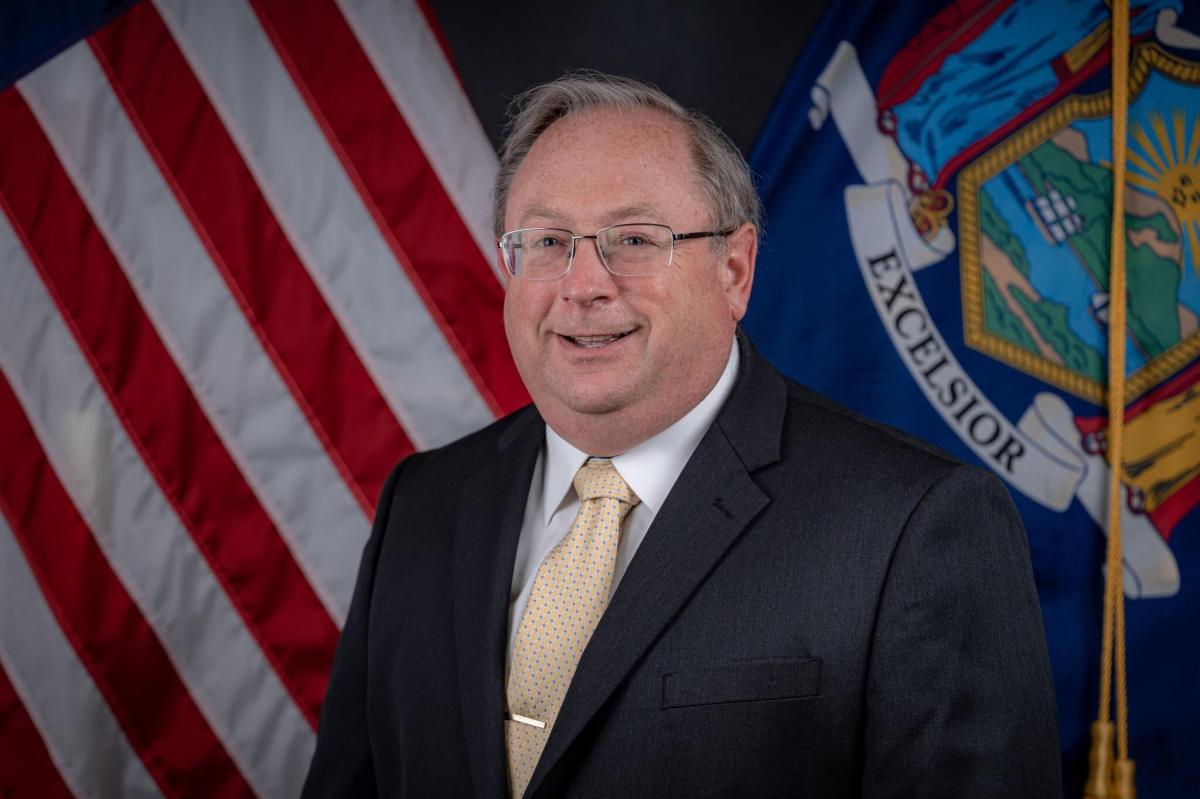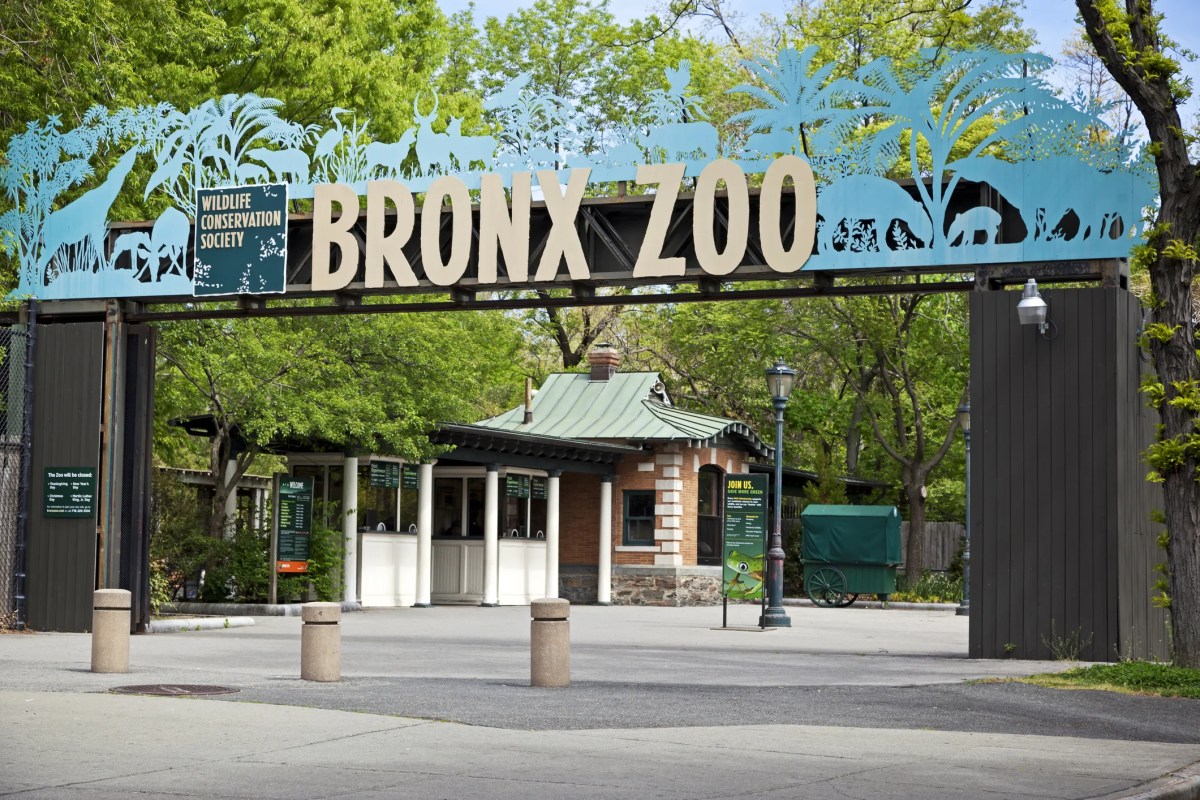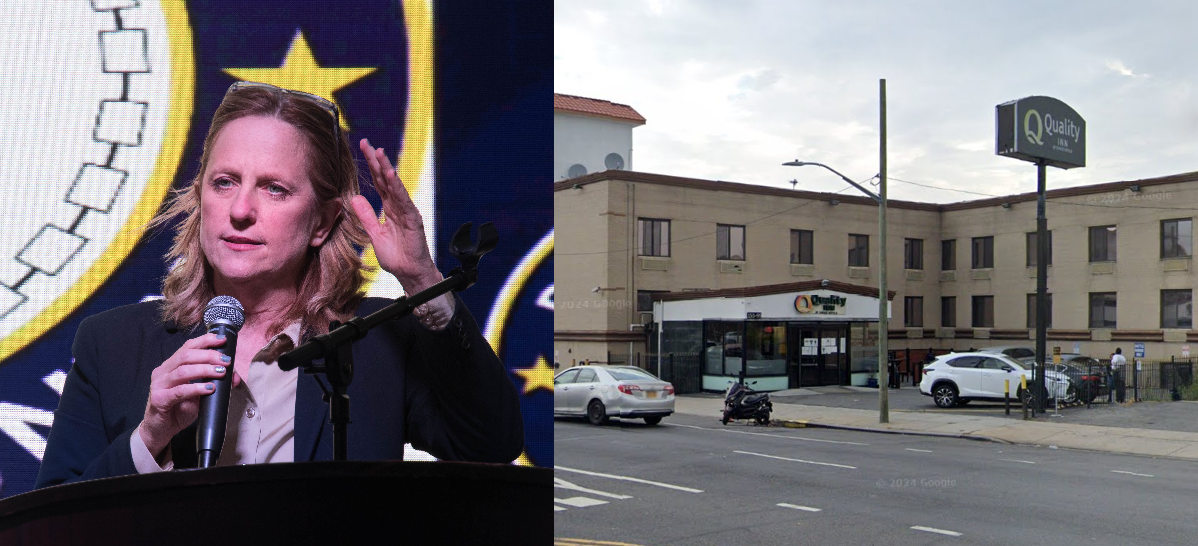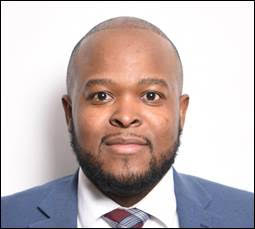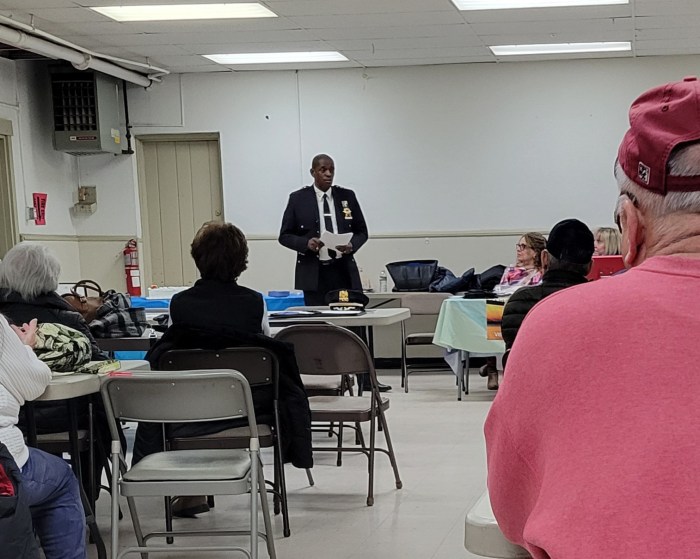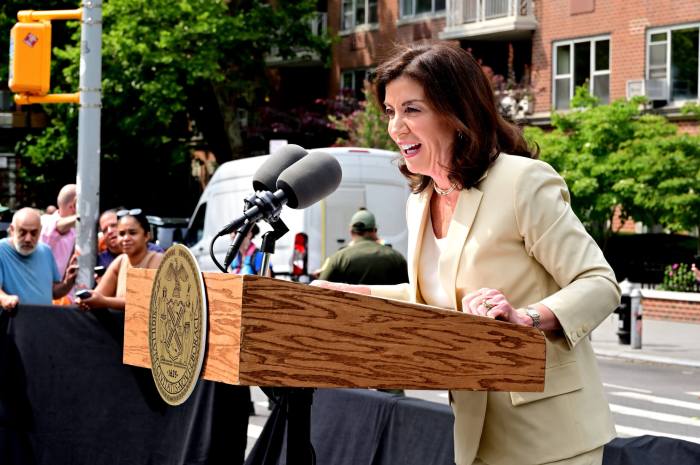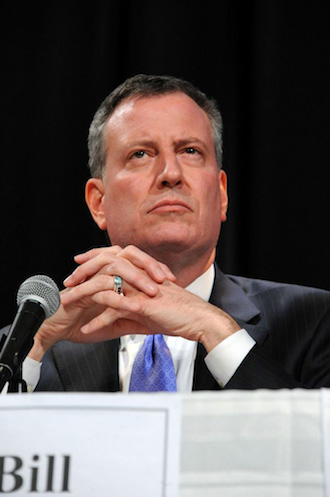
BY JACKSON CHEN | With Mayor Bill de Blasio having offered his administration’s legal support in favor of a 20-story nursing home project, some Upper West Side residents are raising new ethical questions about the proposed West 97th Street development.
Next door to an elementary school and several senior housing complexes, the project site has faced sharp criticism from both parents of P.S. 163 students and next-door neighbors. Jewish Home Lifecare, the nonprofit looking to build the new nursing home, has been entangled in legal conflicts after both the parents and neighbors filed lawsuits challenging the environmental review conducted on the project. After State Supreme Court Justice Joan Lobis ruled that JHL and the state Department of Health didn’t take a hard enough look at the construction project’s hazardous materials and noise impacts, JHL filed an appeal, but State Attorney General Eric Schneiderman, responsible for representing DOH, missed his deadline.
Instead, the mayor threw in his support in the form of an amicus brief filed on March 22. According to a de Blasio spokesperson, the city’s brief is merely intended to defend the integrity of the City Environmental Quality Review process.
With a federal magnifying glass being cast over de Blasio’s campaign fundraising practices, a devoted opponent of the JHL project is questioning the mayor’s links to the nursing home development.
According to Marty Rosenblatt, a neighbor who arranged for expert lead testing on the site, the mayor’s favor for the JHL project may stem from his close relations with Kramer Levin Naftalis and Frankel LLP, a law firm that represented JHL in the past and currently represents Joseph Chetrit, a real estate developer with a big investment in the 97th Street development being approved.
In late 2011, Joseph Chetrit partnered with Larry Gluck of Stellar Management, who owns the parking lot on West 97th Street that would be replaced by the nursing home, to complete a land swap deal for JHL’s current campus on West 106th Street, which like the West 97th site is between Columbus and Amsterdam Avenues. Many observers believe Chetrit, a well-known developer, plans to construct a tall luxury condo development on JHL’s former campus.
Kramer Levin, Rosenblatt noted, represented JHL on the nursing home project during its appearances before the city’s Board of Standards and Appeals in 2015.
Kramer Levin has long been a friend of the mayor’s, with its attorneys donating nearly $33,000 to de Blasio’s 2013 mayoral bid. Kramer Levin’s Midtown offices recently provided the venue for the mayor’s fundraising kickoff to his expected 2017 reelection bid, according to the Wall Street Journal. The New York Times reported that late in 2013, just weeks before his inauguration, de Blasio appeared before prospective donors at Kramer Levin’s offices and then left the room before money was solicited. Among those donors was Jona Rechnitz, who has emerged as a central figure in the federal fundraising probe.
Compared to the city’s other major law firms, Kramer Levin’s contributions far exceeded the average haul of $5,000 from among the top 20. Only Sullivan & Cromwell LLP attorneys, who gave nearly $20,000, came close.
With the investigation by US Attorney Preet Bharara and the FBI into de Blasio’s fundraising as well as NYPD corruption heating up, the mayor last week hired Kramer Levin’s Barry Berke, a white-collar criminal attorney who handles “sensitive and high-profile investigations and proceedings,” to represent his 2013 campaign in reaching out to the federal prosecutor. The Wall Street Journal reported that Berke subsequently postponed a de Blasio fundraiser he had planned for April 26.
With the nursing home project proving to be a tough legal battle for JHL to wage — especially with the state sidelined in representing the Department of Health’s environmental review — the mayor’s recent amicus brief is a helpful boost for the nonprofit’s effort to push its project, an outcome that would benefit Kramer Levin client Chetrit.
Residents who are furious with the city supporting a project that they see endangering children and seniors have asked the mayor to retract the city’s amicus brief.
And on a separate issue, some neighbors and their attorneys have mounted a conflict of interest complaint with Governor Andrew Cuomo regarding the role of an engineering consulting firm in the state environmental review of the nursing home project. In an April 4 letter to the governor’s office, the project’s critics said that AKRF, Inc., a firm retained by JHL to interface with the state on its environmental review, has received “substantial sums of money” for work on other projects from the State Dormitory Authority, an agency brought into the nursing home assessment as a consultant to the Department of Health. According to information released under a Freedom of Information Law request, the Dormitory Authority has paid more than $700,000 to AKRF, $25,000 of that during the time of the JHL project review.
“Both the lead agency and its consulting agency were employing the services of AKRF, Inc., and paying it substantial sums of money,” the letter states, “at a time when these agencies should have been impartially and objectively evaluating the findings and recommendations of AKRF.”
The letter to Cuomo also charged that JHL’s attorney, Steven Russo of Greenberg Traurig LLP, provided the legal advice to DOH on the nursing home review in a series of email exchanges.
Rosenblatt, one of the authors of the letter, said the governor’s office has acknowledged receipt of it, but otherwise not responded.
Neither Chetrit nor AKRF was available to respond to requests for comment. Ethan Geto, a spokesperson for JHL, said allegations regarding conflicts of interest are “100 percent inaccurate. Many law firms and many environmental consulting firms work for city or state agencies on a routine basis.” Greenberg Traurig’s Russo was in no way representing or providing legal advice to any state agencies during correspondences about the environmental review, Geto added.
“We don’t see any basis by which the plaintiffs would prevail,” he said. “I don’t think there’s any conflict of interest of any kind.”




